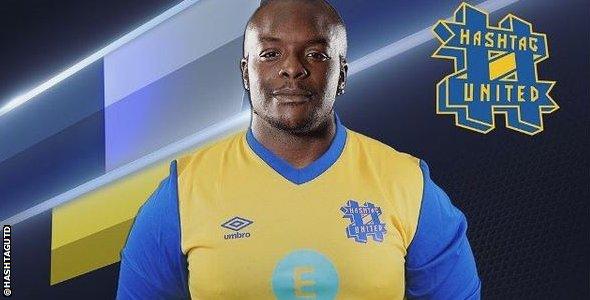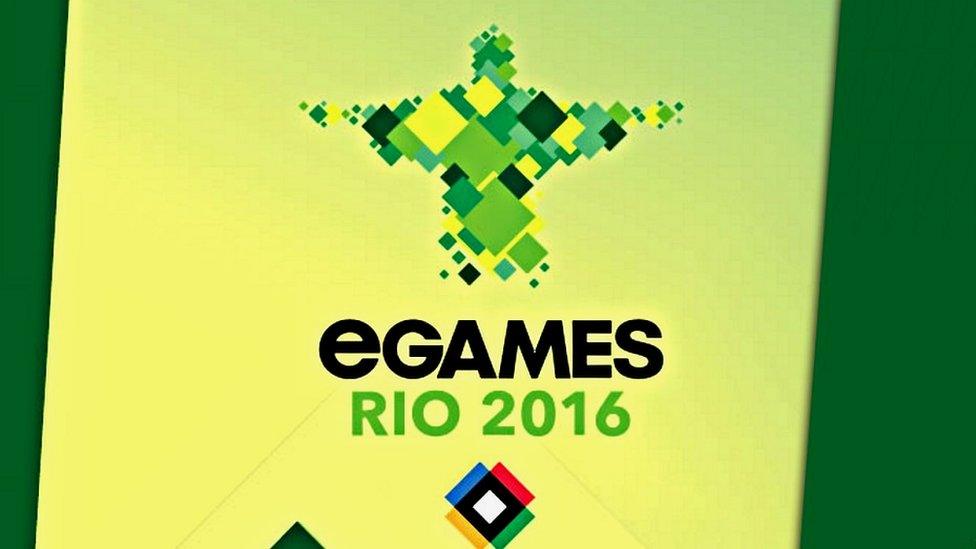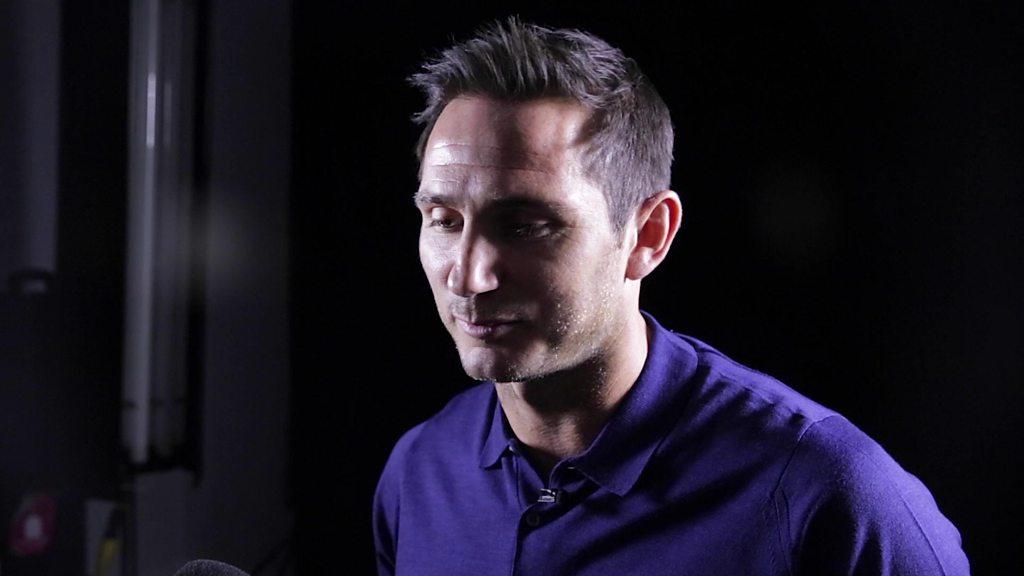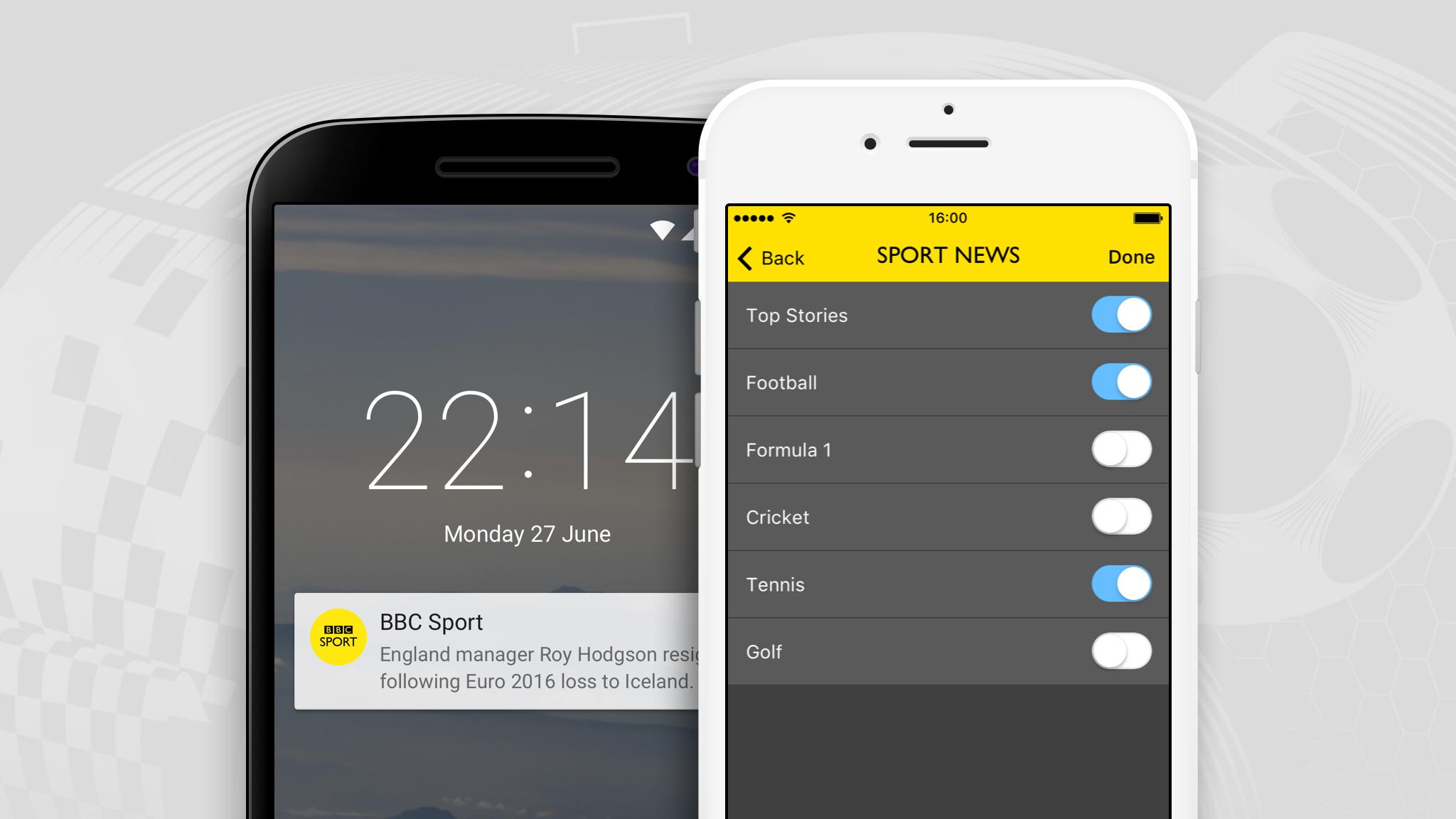Hashtag United & the YouTube generation: Football's future?
- Published
- comments
Hashtag United score in front of YouTube cameras
They have no place on the football pyramid and only a handful of travelling fans, but more than half a million viewers tune in to watch one team of amateurs play every week.
Hashtag United were only officially formed six months ago, but are pioneering an alternative way of consuming football that's a far cry from the sport's elite.
The club have taken concepts used in electronic gaming and brought them to 'real-life' football - throwing in a shot of Sunday league camaraderie for good measure.
However, this side is far removed from the cold changing rooms, unpredictable playing surfaces and fixture postponements associated with the grassroots game played by thousands on weekend mornings.
Hashtag don't play in a conventional league, but have already appeared at Wembley, almost signed Adebayo 'The Beast' Akinfenwa and earned the chance to feature on the new Football Manager game.
So what exactly is the attraction of watching a bunch of guys you have never heard of playing against teams you never knew existed?
The skipper's role

Captain Spencer Owen created Hashtag United for his YouTube channel Spencer FC
Hashtag's games are filmed by a four-man camera crew then edited and posted on YouTube. They play matches that are almost exhibition in style, using video games as an inspiration for applying league formats, incentives and challenges.
It's working, because the London-based club already boast a social media following bigger than some English Football League sides.
Their Instagram account topped 100,000 followers this month, they have over 41,000 on Twitter and a recent team 'penalty challenge' was watched by more than one million people on YouTube.
But to understand the club's appeal, you have to first acknowledge the background of creator and captain Spencer Owen.
Owen is a YouTube celebrity in his own right with 1.5 million people subscribing to his channel, Spencer FC., external It was his idea that all Hashtag's games, and some training exercises, would be filmed with the purpose of being shown in highlights packages online.
"Using my channel and existing fanbase as a starting point certainly helped," said the 27-year-old, who arranges the matches.
"Creating a football team with games that play out on YouTube has always been a big ambition for me and this year felt like the right time to finally give it a go."
His own journey to relative YouTube stardom began eight years ago, making video content in his bedroom at university in Reading, and in 2013 he turned that into a full-time career.
So why does he believe this recipe has been a success?
"There's been a lot of support for 'real-life' football content on YouTube for a while and it's great to see," added Owen, whose other projects include the popular Wembley Cup., external
"It's certainly an alternative to the business-driven Premier League with £100m transfer fees and £100 match tickets."
Boys and The Beast
How has Fifa game helped Akinfenwa?
An audacious bid for now-Wycombe forward Akinfenwa aside, Hashtag United's side has been cobbled together from old school friends and university mates.
Facing teams including Google, a Comedians XI and a Manchester City staff team, Hashtag often play in top-flight stadiums and against players ranging from ex-pros such as Graeme Le Saux, Ray Parlour and Paul Dickov to British stand-up comic Omid Djalili.
"We don't pretend to be top-quality footballers," added Owen. "We all come from different backgrounds and our squad is made up of players with varying abilities.
"We are just a group of down-to-earth guys who enjoy playing football with each other and we're loving some of the incredible things we've got to do together."
Average Joes or not, you may end up signing one of the Hashtag United squad on computer simulation game Football Manager next season.
"The fact that we are all going to be in the new Football Manager game is incredible because we all grew up playing it," said Owen. "That was an awesome reward for defeating the FM team.
"Akinfenwa is a good friend of mine and for a while the deal looked like it might happen. When he did his Zlatan-style announcement, external about signing for us it certainly turned a few heads."

Adebayo Akinfenwa teased fans on Instagram over a move to Hashtag United
Bringing e-gaming to life
While a traditional league system is confined to structures and regulations set by football's governing bodies, Hashtag have used a set-up similar to one you might find on a computer game.
Electronic gaming is an incredibly popular market and e-sports, where players compete on video games against one another, is a big-money business.
In fact, while all Hashtag's 'real-life' players are amateurs, the club employs a professional Fifa player, Harry Hesketh, with Premier League clubs such as West Ham doing the same.
Back in the (almost) real world, Owen has created a divisional set-up that suits the club's needs. Each 'division' lasts 10 games, while promotion and relegation depends on Hashtag hitting a certain points target.
It's like moving up or down levels on a video game, with Hashtag essentially the only side in the division.
"We've kind of re-imagined the way a football league structure can work," added Owen, who grew up in Essex.
"We've taken a lot of influences from popular football gaming titles in the way that we've built accomplishments and challenges into our content and our own divisional set up is similar to one you might find when playing games such as Fifa 16 online."
Is anyone else doing it?

Hashtag are not the only side to have built a YouTube following. Others such as Sidemen and Palmers FC also exist in the online world having arrived there via varying routes.
While Hashtag provide a well-polished production, for Palmers the football came first and the YouTube videos followed.
The Thurrock-based friends played together as youngsters and decided to reform as a Sunday league team three years ago. In Matt Smith, or Smiv, they already had a YouTuber, external in their ranks.
"It was all about having a bit of a reunion every Sunday," explained Smith. "We don't see each other much now as we've all got jobs and commitments, so that's pretty much our time together as mates.
"The first season we didn't film, but the next season I kicked off the YouTube channel because, with the amount of stuff that happened in that original season, I wished we had got it on camera.
"In our first game filming we scored from a corner, so I thought 'we've got a good series going on here'. It wasn't until about half a year in when people started cottoning on to it and sharing it. There was a big fight on the pitch and it went viral. Ever since then it's gained traction."
Smith, a video producer by trade, turned his YouTube channel into a full-time job last year and Palmers' games - recorded from the halfway line on one of his old cameras - rack up hundreds of thousands of hits.
"It's nitty gritty, it's wet and muddy - we don't really care about the look of it, it's capturing as much as possible, really," he added. "I think that's why it works, because it's so simple.
"Sometimes the view's not great, sometimes people get in the way, you miss a goal or the battery runs out. There's no script to it either, we plonk the camera down and whatever happens, happens."
Will YouTube teams become the norm?

Say cheese. Hashtag United pose for a team photo
There is a hope that traditional grassroots sides will be able to adopt some of these aspects and develop their own highlights packages to share on social media platforms, whether that be to increase fan engagement or analyse individual performances.
Pitchero is a company that provides websites for grassroots sports clubs, and is currently used by more than 4.2 million people each month.
The company is now encouraging users to work with one of its new technology packages to record live matches and take 30-second, shareable highlight clips.
Pitchero's CEO Mark Fletcher believes there is huge potential in developing club-generated content.
"Sport is inherently engaging. It's why people watch sport in the first place - in the hope of witnessing something amazing," he said. "These amazing things happen at all levels of sport."
Smith isn't sure it is for everyone, although he does hope other teams will get on board because "football is a good laugh and a good way of sharing different things".
He says the current Palmers team has "another year or two max" after this season, but is toying with ideas of how to prolong the brand.
"I'm yet to see a proper Sunday league team do it properly," he said. "People pop up, but not consistently, every single week. I think it's quite rare for a video producer to be part of a football team.
"That's what I'm trying to do now, future-proof it and work out where we go when the 29, 30-year-olds hang their boots up and start families.
"One route would possibly be to start a football academy off the back of it, because there is so much interest and a lot of youngsters want to play just to play for Palmers - they just want to wear the kit."
As for Hashtag United, who have also enjoyed success selling club shirts and memorabilia to fans, Spencer is confident the club will outlive the playing careers of him and his team-mates.
"As a club, I think Hashtag United has huge potential with where it could go in the future," he added.
"We've got some very exciting plans to take things up a gear in terms of opposition and challenges. We're only just getting started."
- Attribution
- Published7 April 2016

- Published21 March 2016

- Published14 January 2018
- Published8 August 2017

- Published7 June 2019
